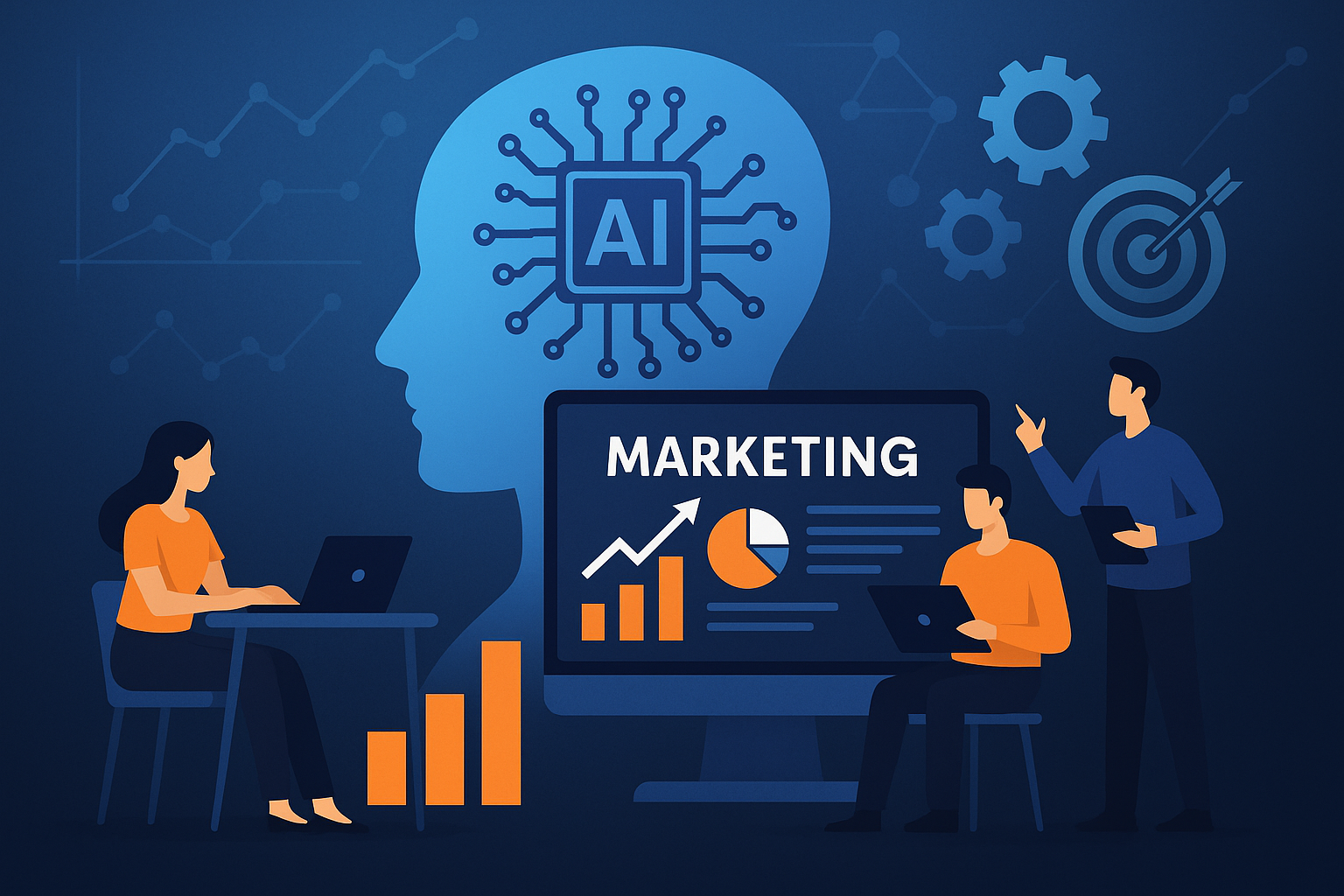
Marketing in the Age of AI: How to Stay Ahead of the Competition
Introduction
We’ve entered a transformative era where artificial intelligence (AI) is no longer just a futuristic concept—it’s a fundamental part of modern marketing. For brands, especially those operating in fast-moving industries like FMCG and DTC, the ability to adapt and innovate using AI can mean the difference between thriving and becoming obsolete. This article explores how businesses can harness AI to refine their marketing strategies and stay ahead in an increasingly competitive landscape.
1. The Shift Toward AI-Driven Marketing
The digital marketing landscape has shifted dramatically over the past decade. Traditional mass-market approaches have been replaced by highly targeted, data-driven tactics. AI tools like machine learning, predictive analytics, and natural language processing are enabling brands to:
- Understand customer behavior in real time
- Segment audiences with unprecedented precision
- Automate decision-making for faster campaign execution
Marketers who embrace AI are gaining deeper insights and delivering more relevant experiences, setting themselves apart from competitors still relying on manual or outdated strategies.
2. Hyper-Personalization at Scale
Today’s consumers expect marketing messages that feel tailored to their individual needs. AI enables hyper-personalization by analyzing customer data—such as browsing behavior, purchase history, and engagement patterns—to craft highly specific content. Some applications include:
- Personalized product recommendations
- Targeted email marketing
- Dynamic website content based on user profile
When done right, AI-powered personalization improves customer satisfaction and boosts conversion rates, all while reducing the burden on marketing teams.
3. Smarter Content Creation and Optimization
AI is revolutionizing the content creation process. From writing blog posts and product descriptions to generating social media content and video scripts, AI tools like natural language generators (NLG) are helping marketers work faster and smarter. Benefits include:
- Consistent brand voice across channels
- Real-time SEO optimization
- A/B testing at scale to identify top-performing messaging
With AI, content creation becomes a data-backed process, rather than relying solely on creative instinct.
4. Real-Time Decision-Making with Predictive Analytics
Marketers often struggle with timing—when to launch a campaign, which audience to target, or how much budget to allocate. AI solves this by analyzing vast datasets and identifying patterns that inform decision-making. For example:
- Predictive lead scoring improves sales conversions
- Demand forecasting reduces overstock or understock scenarios
- AI-driven dashboards provide real-time campaign insights
Armed with predictive analytics, marketers can react to changes in customer behavior and market trends faster than ever before.
5. Automation that Increases Efficiency
Automation tools powered by AI take care of repetitive, time-consuming tasks so marketing teams can focus on strategy and creativity. These tools can:
- Manage multi-channel campaigns automatically
- Score leads and trigger email sequences
- Run social media posting and ad optimization
AI-driven automation enhances productivity and ensures that nothing falls through the cracks—especially in fast-paced digital environments.
6. Competitive Intelligence and Market Trend Analysis
To stay ahead, brands must understand what their competitors are doing. AI can scan the digital landscape and provide competitive intelligence, such as:
- Pricing strategies
- Campaign tactics
- Social sentiment analysis
Additionally, AI tools can detect emerging trends by analyzing consumer search behavior, online discussions, and product reviews—giving brands a strategic advantage in adapting early.
7. Ethical Considerations and Responsible AI Use
While the benefits of AI in marketing are undeniable, brands must also consider ethical implications. Using consumer data responsibly, avoiding bias in AI algorithms, and maintaining transparency are key to building trust with customers. Forward-thinking marketers are investing in ethical AI frameworks and data governance to ensure compliance and integrity.
Conclusion
Marketing in the age of AI is not about replacing human creativity—it’s about augmenting it with intelligent systems that drive precision, speed, and impact. Brands that successfully integrate AI into their marketing strategies will not only stay ahead of the competition but also build stronger, more lasting relationships with their customers.
As technology continues to evolve, the most successful marketers will be those who learn to blend data science with storytelling—backed by a strong commitment to ethics, personalization, and innovation.